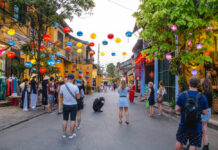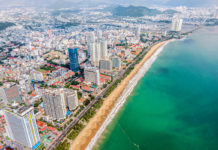Vietnam is a beautiful and diverse country that attracts millions of tourists every year. Whether you want to explore its rich culture, history, and cuisine, or enjoy its stunning natural scenery, beaches, and islands, Vietnam has something for everyone. But before you pack your bags and book your flight, you need to know about the visa requirements for entering and staying in Vietnam.
Do I need a visa to visit Vietnam?
The answer depends on your nationality, purpose, and duration of your visit. Vietnam has a visa exemption policy for citizens of some countries, such as the UK, France, Germany, Japan, and South Korea, who can enter Vietnam without a visa for up to 45 days. However, this policy is subject to change, so you should always check the latest information on the Vietnam Immigration Department website or the Vietnam Embassy in your country.
If you are not eligible for visa exemption, or if you plan to stay longer than 45 days, you will need to apply for a visa before you travel to Vietnam. There are different types of visas available, depending on your purpose of visit, such as tourism, business, work, study, or family visit. The most common visa type for tourists is the e-visa, which allows a single or multiple entry for up to 90 days.
How do I apply for an e-visa?
An e-visa is an electronic visa that you can apply for online through the Vietnam e-visa portal. You will need to fill out an application form, upload a passport photo and a scan of your passport, and pay a fee of $25 USD. The processing time is usually 3 working days, but it may take longer during peak seasons or holidays. Once your e-visa is approved, you will receive an email with a link to download and print your e-visa. You must present your e-visa at the immigration checkpoint when you arrive in Vietnam.
One of the advantages of the e-visa is that you can choose from a list of 42 ports of entry and exit, including major airports, seaports, and land borders. However, you must stick to the ports that you selected when you applied for your e-visa. If you want to change your ports, you will need to apply for a new e-visa.
How do I extend or renew my visa?
If you want to stay longer in Vietnam than your visa allows, you will need to apply for a visa extension or renewal. A visa extension means that you can stay longer without leaving the country, but you cannot change your visa type or entry/exit ports. A visa renewal means that you will get a new visa with a new duration and entry/exit ports, but you will have to leave the country and re-enter with your new visa.
You can apply for a visa extension or renewal through the Vietnam Immigration Department, or through a travel agent or a sponsor in Vietnam. The fees and processing times vary depending on your visa type, nationality, and length of stay. You should apply for a visa extension or renewal at least 7 days before your visa expires, otherwise you may face a fine or deportation.
What are the rules and regulations for visa holders?
As a visa holder, you must comply with the Vietnamese laws and regulations during your stay in Vietnam. Some of the important rules are:
- You must have a valid passport with at least 6 months of validity and 2 blank pages.
- You must have your visa stamped and checked at the border control when you enter and exit Vietnam.
- You must declare your temporary residence to the local authorities or your accommodation provider within 24 hours of your arrival.
- You must not overstay your visa or work illegally in Vietnam.
- You must respect the customs, culture, and traditions of Vietnam.
If you break any of these rules, you may face penalties, such as fines, detention, or deportation. You may also be banned from entering Vietnam in the future.
Conclusion
Vietnam is a wonderful destination for travelers who want to experience its beauty and diversity. However, before you go, you need to make sure that you have the right visa for your trip. By following the steps and tips in this article, you can easily apply for and obtain your Vietnam visa, and enjoy your stay in this amazing country.
























